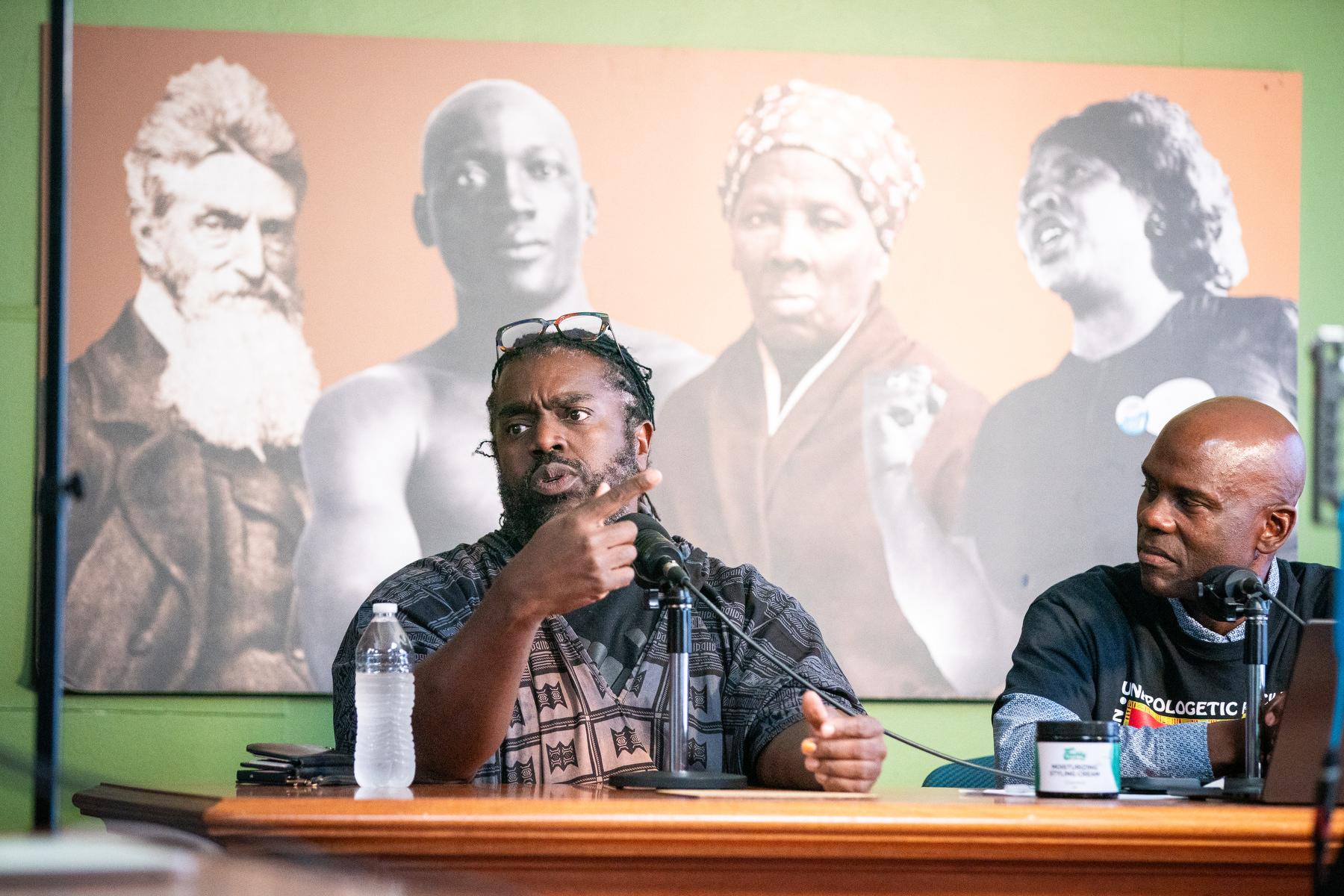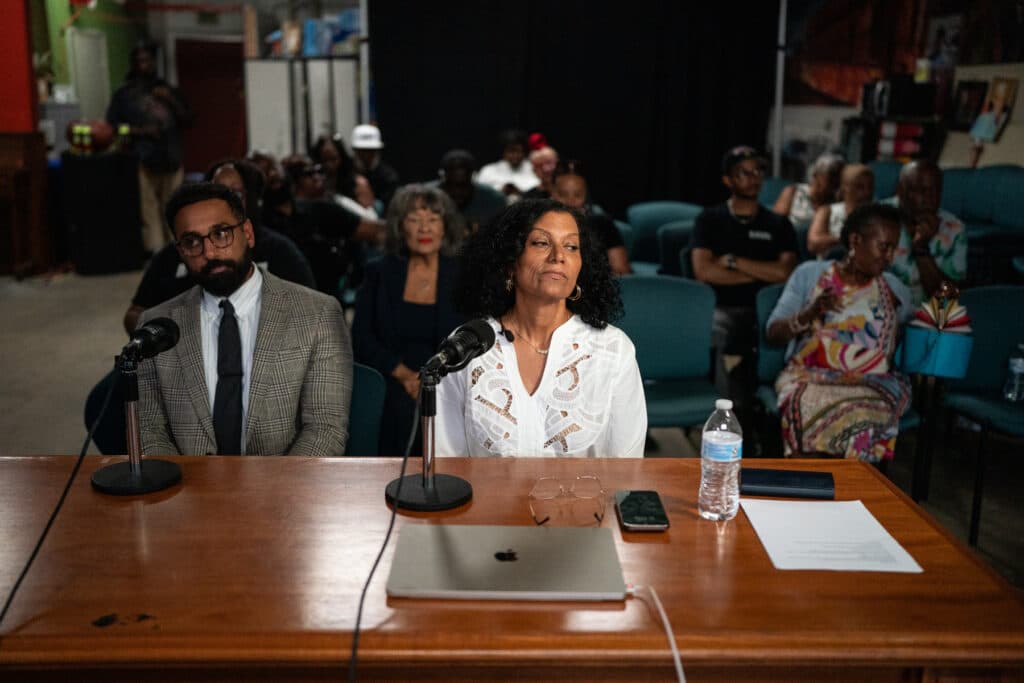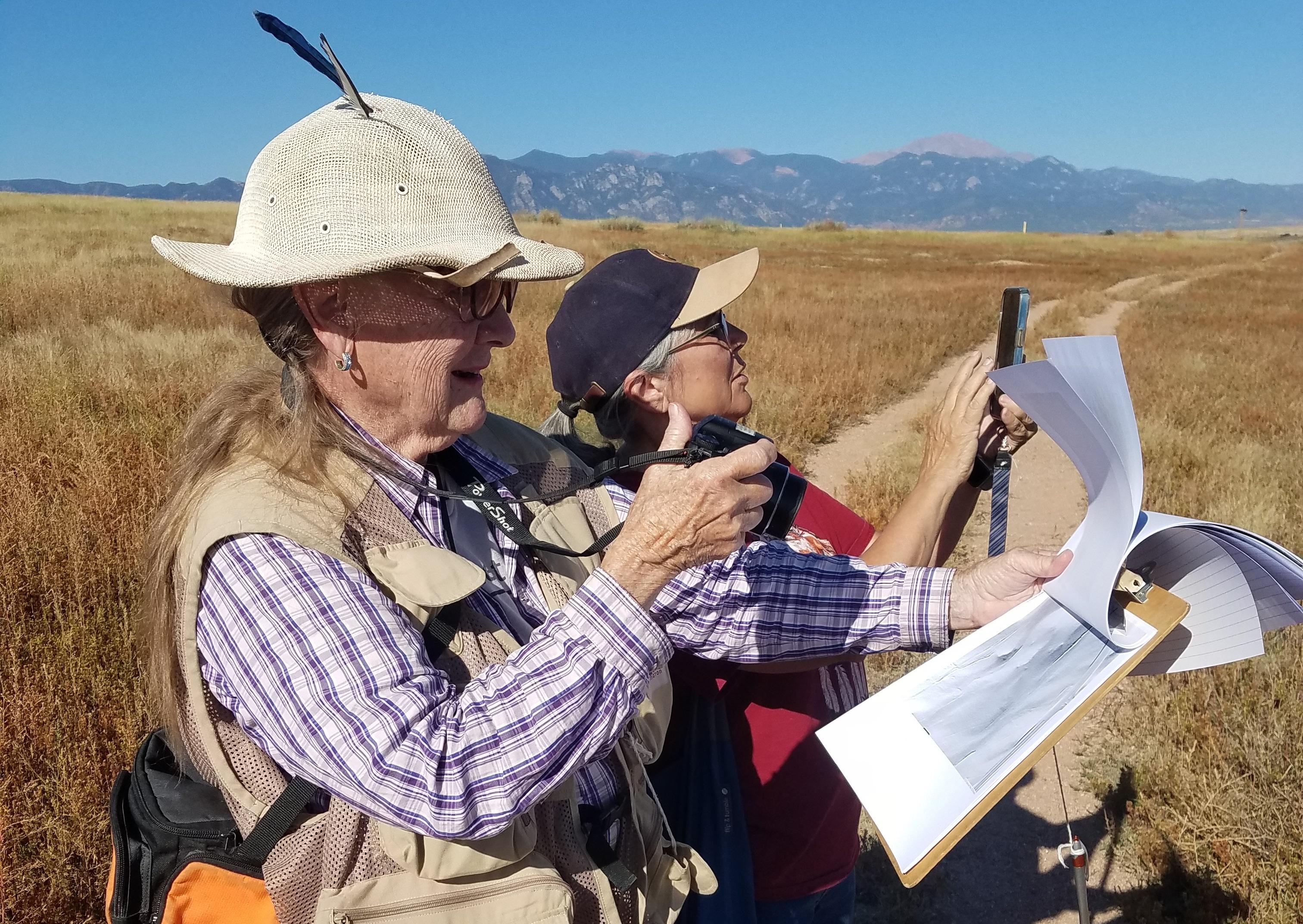
Colorado’s governor, attorney general and coalition of Black Democrats have weighed in with concern and opposition to the recent censure of University of Colorado Regent Wanda James.
A group of Colorado Black Democrats this week decried the July 2 censure as a “modern-day procedural lynching.”
Their statement comes a few days after Attorney General Phil Weiser expressed concern on X (formerly Twitter) on Sunday that James’ first amendment rights to free expression were violated by the censure.
And that follows a statement by Gov. Jared Polis’ office earlier this month, distancing itself from having any influence on the events leading up to the censure — only the second time in CU’s history such a step has been taken.
Meanwhile, James said she expected the censure — but didn’t know there were sanctions attached, and now she questions whether they’re enforceable.
The CU Board of Regents voted 7-1 in a virtual meeting to censure her for comments she made about the Tea on THC campaign that promoted awareness about the effects of high-THC cannabis use.
Regents who attended the meeting both for the censure and a meeting before it to move forward, say the decision was not based on racism as James says, but because of her conflict of interest as both a Regent set to serve until 2029 and as the owner of a Denver cannabis dispensary.
The censure came after a brief meeting in which James abstained and Nolbert Chavez voted against it.
At issue were statements James made to two local publications about the campaign, which used images of Black or dark-skinned male drawn characters alongside words describing some of the negative outcomes of using cannabis, including laziness and poor school performance.
James felt it made an association between Blackness and laziness and poor school performance and other outcomes. She reached out to the governor’s office, making suggestions that taxpayer funding for the campaign be diverted to social equity programs.
The images that James objected to were quickly removed from the campaign, and her comments on its funding had no impact.
Nonetheless, regents felt that her opposition to the funding for the campaign was based on her concern that it could interfere with the success of her business, which is sales of cannabis and cannabis-related products.
Conversation about the censure has continued since the censure. On Tuesday, Hashim Coates, chair of the Black Colorado Democrats issued a statement to “formally and unequivocally register both my personal concern and that of the Colorado Black Democrats regarding the treatment of CU Regent Wanda James. . . . : This is not simply a political disagreement or internal procedural dispute. The actions taken against Regent James were morally indefensible, politically motivated, and disturbingly reminiscent of an era when the University of Colorado had yet to fully embrace integration and equity. What we witnessed was not just a censure but a modern-day procedural lynching.”
The statement continues: “The nuances of this situation have not gone unnoticed. The dog whistles are loud. The alignment of this decision with the ideological tone of the current Trump-MAGA resurgence is evident. That some members of this governing body appear to have bent to that pressure, knowingly or not, is deeply troubling.”
It comes just days after a statement posted by Weiser on X which suggests the Regents reconsider their position: “The First Amendment protects the right to free expression. Neither a White House executive order nor a public university policy can override this fundamental right. I am concerned that the CU Board of Regents action sanctioning Regent Wanda James did just that. The CU Board of Regents’ policy as applied to the speech of elected regents must be consistent with the protection of the right to free expression. If [a] CU Regent Policy . . . can be applied in a way that silences a Regent’s voice, then the policy is on shaky legal ground.” His post added that the regents “would do well to reconsider its action against her.”
After the meeting, which James attended remotely with some of her supporters at Brother Jeff’s Cultural Center in Denver’s Five Points, she spoke with CPR News on her way into the Welton Street Cafe. She said she had anticipated the decision, but not what would change for her: “I'm not shocked about being censured. I'm shocked about the sanctions.”

Her voice sounding emotional, she said: “After being censured, I found out that there are two sanctions against me: They're removing me from all of my committee assignments and I am uninvited to all university events.” She said she had served as vice-chair of the University Affairs Committee.
When asked how she felt about it, she closed her eyes and then reopened them before answering: “Shocked, to be honest with you, the committee assignments I expected, [but] being removed from university events? I don't even know what that means yet. I need to talk to my lawyers and find out what [it means] that I can't go to a university event. I'm an alumna of the university . . . and it's a public university, so I don't know if they [can] keep me out of anything. However, the all white regents have decided that if you stand up for the Black community, if you voice dissent about racism, that you are no longer allowed to be in their circles.”
The day James was censured, Gov. Polis’ office released a statement, walking through some of the events leading up to it and distancing himself from a conversation on the campaign:
“The Governor does not have any recollection of speaking to Regent Wanda James during the time the administration was developing the 2025-2026 budget submission. He was, however, made aware of the deeply insensitive images created by CU School of Public Health’s “Tea on THC Campaign" funded by HB 21-1317 and was disturbed that CU was administering such an insensitive campaign,” according to the statement, provided in an email to CPR News by Shelby Wieman, Press Secretary to Gov. Polis.
It continues by explaining that the governor’s office didn’t support the funding. “Ultimately, the Governor and the Governor’s budget team made a decision that in the difficult budget environment that included more than $45M in additional budget balancing proposals and cuts, and in the context of reduced revenue in the marijuana tax cash fund, this funding could be better allocated to other priorities of the MTCF. "
Funding was not reallocated, which left James feeling that her advocacy against the campaign and its funding was a moot point as it ultimately had no impact. She has decried all censure moves as designed to remove her from their ranks because she is Black.
Regents who opposed her have been steadfast throughout the censure process, with Regent-at-Large Elliott Hood saying during the brief meeting: “You cannot put your interests or the interests of your trade above the interests of the university you serve ... I find that you violated your fiduciary duty and I believe censure is warranted in this case.”
Other regents also spoke at the meeting, including Ilana Dubin Spiegel, whose term of service is from 2021 until 2027.
“Regent James is passionate, intelligent, and dedicated,” she said. “When she first brought insensitive images to my attention, I offered support. Regent James thanked me and said it was being taken care of. . . . That is what responsible leadership looks like. What I cannot support are subsequent efforts to misrepresent facts, politicize science, and misuse the platform of this office in ways that undermine trust and distract from our mission.”
This is the second time in the system’s history that a censure was issued. In October 2022, regents voted unanimously to censure Glen Gallegos, from the Grand Junction area, because of having engaged in behavior seen as disparaging, disrespectful and threatening, particularly towards women.
The sanctions and censure could go away the same way they came about. According to Michele Ames, vice president of communication for University of Colorado, there is no specified end date to the sanctions. “As with all actions taken by the board of regents,” she said, “they could vote; a majority vote would lift the sanctions and the censure.”









